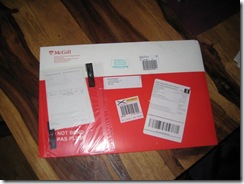 As publicity chair for ISSTA 2011, it is my pleasure to invite you all to Toronto, Ontario for July 17th-21st, 2011.
As publicity chair for ISSTA 2011, it is my pleasure to invite you all to Toronto, Ontario for July 17th-21st, 2011.
Toronto promises to be an exciting venue and our excellent program committee will certainly do its best to provide an great program. However, a conference is nothing without strong research papers! You are invited to submit technical papers describing original research in testing or analysis of computer software. Papers describing theoretical or empirical research, new techniques, or in-depth case studies of testing and analysis methods and tools are welcome.
You can download the full call for papers on the right. Workshop proposals are due Friday, November 19, 2011 and research papers on Friday, February 4, 2011.
Finally, if you wish to promote ISSTA yourself, you can download a web banner here.







